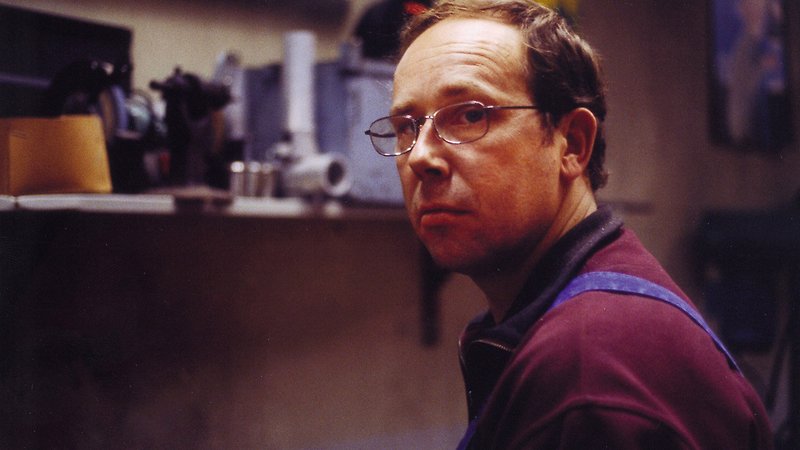
Screened as part of NZIFF 2002
The Son 2002
Le Fils
"Palme d’Or winners in 1999, with their remarkable réalité drama Rosetta, the Dardenne brothers Jean-Pierre and Luc return with The Son, a powerful movie, recognisably – indeed, unmistakably – in the same directorial vein. The directors have cast a first-class actor, who is developing into their great repertory player: Olivier Gourmet, an almost perfect everyman figure, with his heavy, jowly face, wispy receding hair and specs. He is a carpenter and an irritable, exacting but fair task-master to his shiftless teenage apprentices; but he seems strangely curious about one lad assigned to his charge, and the secret between man and boy is played out in the Dardennes’ habitual style – cloudy days, dull suburban locations and hand-held shots coming in very close to the principals’ heads and faces.
Very few films focus on the one thing that dominates all our lives: the world of work. This one does, and this aspect makes it a deeply intelligent and satisfying experience. The Dardennes take us into the minutiae, the details: how to handle wood, how to use and care for tools, how to distinguish different types of material. This is never dull: it shows a reverence for the texture of real life. As for the drama itself, this emerges as more contentious. Gourmet’s life is fraught in many ways: he is estranged from his wife, who is now pregnant by her new boyfriend, and is bothered by a wayward sibling with what appears to be a drug problem. And now there is the apprentice boy, whose existence presents him with a terrifying choice.
We might guess that he is an illegitimate son, but no. He is just out of prison for killing Gourmet’s son in the course of a robbery five years ago, and Gourmet appears to be making the extraordinary gesture of taking the boy into his pastoral care without revealing the truth to the authorities or to the boy himself. The images of carpentry, and of father and son, suggest a Christian allegory of forgiveness, but Gourmet and the Dardennes themselves fight shy of any overt moral reasoning. Gourmet’s horrified ex-wife demands to know why he is doing this, and the response is inevitable: ‘Je ne sais pas’." — Peter Bradshaw, The Guardian